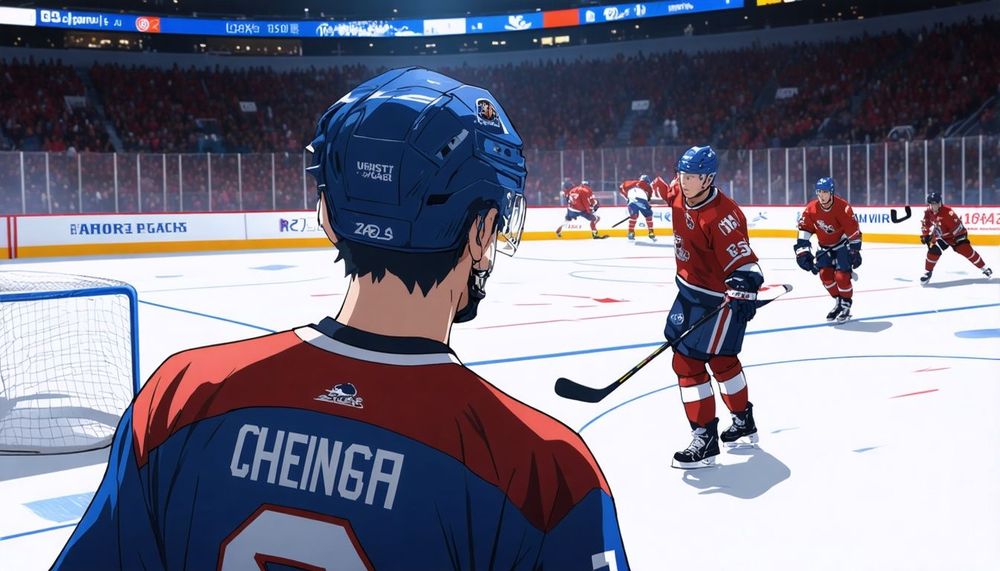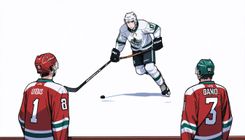The Future of NHL Expansion: A Look at Potential Candidates

The Stanley Cup has been awarded, promising new talent has been drafted, and the latest round of free agency has concluded, signaling the onset of discussions around NHL expansion. In June, during the NHL's pre-draft meeting, the league's Board of Governors was briefed on the status of cities that have expressed interest in expanding the league to 34 teams. Recent reports suggest that a new and intriguing candidate for expansion has emerged, prompting further discussion on which cities could be next in line for NHL franchises.
One city that often flies under the radar in hockey discussions is Indiana. While some may not immediately connect Indiana with the sport, hockey fans may recall that Wayne Gretzky began his professional career with the WHA's Indianapolis Racers, who played in the city until 1978. Following the Racers' demise, hockey in Indianapolis was represented by the IHL's Indianapolis Checkers and, more recently, by the ECHL's Indy Fuel. However, the Fuel currently play in a venue with a capacity of just 7,500, and the city's prime arena, Gainbridge Fieldhouse, is predominantly occupied by NBA and WNBA events. While the idea of an NHL team in Indianapolis has been floated, recent reports indicate that there has been little momentum toward establishing a serious bid for expansion.
On the other hand, the prospect of hockey in New Orleans seems to be generating more buzz, although substantial progress remains to be seen. In March, Louisiana Governor Jeff Landry and U.S. Representative Steve Scalise publicly announced their engagement with the NHL about the possibility of bringing a team to the Crescent City. Landry has emphasized the potential economic benefits of an NHL franchise in New Orleans, citing the city's capacity to host the Stanley Cup and enhance tourism. However, hockey's historical presence in the city is limited, primarily linked to the ECHL's New Orleans Brass, who played from 1997 to 2002. The Brass folded following the arrival of the NBA’s New Orleans Pelicans, and any new NHL team would presumably share the Smoothie King Center with the Pelicans, a franchise that has struggled to attract a significant fan base since its rebranding.
Moving further west, Austin, Texas, emerges as a potential candidate for NHL expansion, partially driven by a shift in its demographic and cultural landscape. The city's population of approximately 2.5 million has been rising, bolstered by a burgeoning tech scene and a youthful energy. Although the proximity of the AHL's Texas Stars provides some hockey presence, the current arena in Cedar Park lacks the capacity for an NHL team, necessitating the construction of a new facility to elevate Austin's candidacy in the league.
Atlanta's history with the NHL has been tumultuous, featuring two franchise relocations—first the Flames, who moved to Calgary in 1980, and then the Thrashers, who transferred to Winnipeg in 2011—both unsuccessful in establishing a lasting hockey culture. However, discussions have resumed, led by Vernon Krause of Krause Sports and Entertainment, who has enlisted hockey legend Bobby Orr as an adviser. The recent approval of a $3 billion development project featuring an NHL-ready arena in Forsyth County suggests that Atlanta may soon make another bid for a franchise, pending the fulfillment of NHL prerequisites such as stable ownership and an adequate market size.
Additionally, Houston stands as another prime candidate for an NHL franchise and has long been considered an ideal location. The city once boasted the WHA's Houston Aeros, who had notable success in the 1970s. Despite missing the opportunity to join the NHL in 1979, Houston has remained a focal point for potential expansion. Billionaire Dan Friedkin, an influential figure in the sports industry, is reportedly leading efforts to bring an NHL team to Houston, having expressed interest during discussions with the league. This interest is further supported by the city's strong market potential and the financial backing required to sustain a franchise.
As discussions around possible cities for NHL expansion continue, the focus remains on identifying locations that can support a thriving hockey culture. Fan engagement, infrastructure, and market viability will ultimately determine the league's direction in its next expansion phase.









